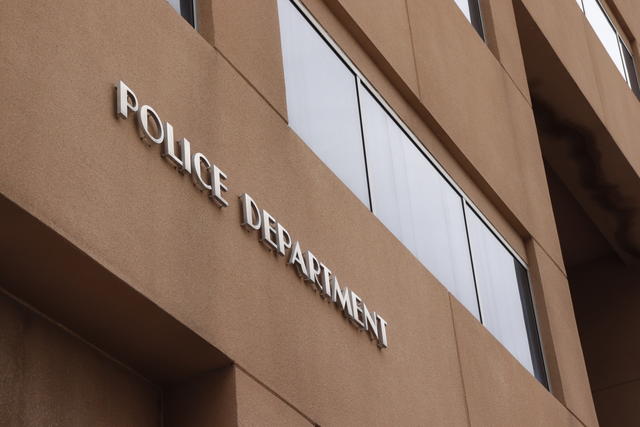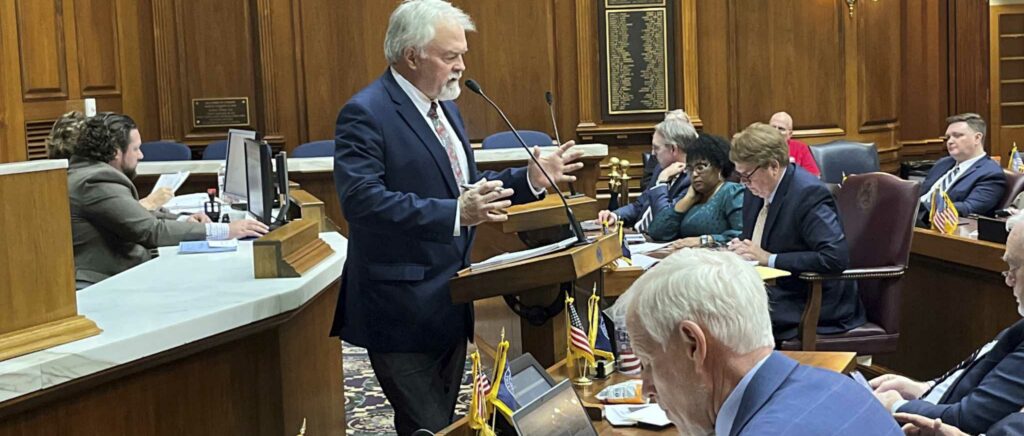The city of Albuquerque and the U.S. Department of Justice have agreed to prioritize the Albuquerque Department of Community Safety, or ACS, taking more behavioral health calls over police officers.
This week, the city and the DOJ amended its Court Approved Settlement Agreement, or CASA, to remove the requirement that Albuquerque police have a “sufficient number” of officers trained to deal with people in crisis.
Going forward, they want more of that responsibility to fall to ACS.
But a spokesperson for ACS, which has just opened a new headquarters, said “additional resources will be required to fully meet the city’s needs.”
For their part, Albuquerque Police Department officials said that does not mean they will actively reduce the number of officers trained in crisis intervention.
“We’re not going to do anything different,” Cori Lowe, ODA’s deputy chief compliance officer, told The Journal on Thursday.
Lowe said “sufficient” was removed from CASA because it was not tied to a specific number and was difficult to “manage and track” as a metric. The city entered CASA in 2014 after a DOJ investigation found officers had a history of using excessive force.
All officers have already received Crisis Response Team training and 54% have completed the eight-hour Enhanced Crisis Response Team training, according to the APD. Lowe said ECIT training comes with a small pay raise and, among other things, officers learn more behavioral health scenarios.
The amendment was one of three made to CASA, according to documents filed Wednesday in U.S. District Court. The others allow civilian staff to investigate Level 1 use-of-force incidents and change investigation timelines to reflect those agreed to by the city and police union.
The changes come months after the Independent Monitor’s last report found that APD had made significant gains with CASA, reaching 80% operational compliance. The good news had followed a turbulent period in which reports revealed that the ODA had backtracked on its reform efforts.
The CASA changes came after a year when Albuquerque police shot a record 18 people, 10 of whom were killed. APD said six of those people had a history of mental health calls and several were in the midst of an apparent mental health crisis when they were shot.
In a press release Wednesday announcing the changes, the DOJ said it and the city had “agreed to critically review areas where ODA has not achieved full compliance in key areas – such as officers’ use of force – and to develop strategies for improvement.”
ODA officials have set a target to be fully CASA compliant by spring 2024.
The American Civil Liberties Union of New Mexico, in a statement Thursday, said it appreciated the amendments to invest in non-policing responses, but added “in order to truly keep our community safe,” the city needs to invest more in ACS” to establish a greater ecosystem of care and support.
“The police are not the solution to all our problems. We recognize that the best way to prevent police violence against our homeless neighbors and people in mental health crisis is to completely remove the police from the equation,” said Daniel Williams, Police Policy Advocate for the ACLU, in the press release.
According to the motion to amend CASA, the city recognizes that ACS “may be more effective and efficient” than police “in responding to certain 911 calls that present with mental and behavioral health issues.”
According to the motion, removing the requirement that the DPA must maintain “a sufficient number” of CIT-certified responders will allow the DPA to focus on data collection to “better assess overall response efforts to the city’s crisis and identify where gaps in essential services remain”. ”
ODA chief Harold Medina said on Thursday it would be a “balancing act” between the two agencies, but there are some calls that ACS will not be able to answer, such as when it there is a person with a weapon or a serious criminal charge.
The amendment also removed the requirement that ODA must have an Outreach and Crisis Support Team, or COAST, as the civilian team “overlaps significantly” with ACS efforts. , according to the motion. The motion states that approximately 15,000 calls have been diverted to ACS since its launch and that number will continue to increase and reduce demand for ODA to respond to behavioral health calls.
Medina said police should “limit their interaction” with people with behavioral health issues. He likened it to having a teacher with a gun to your chest and telling students, “Hey, if you need help, go ask that person over there.”
“A badge and a gun aren’t always the answer,” Medina said. “…If we have a process where it’s not the police who are automatically sent in because they’re a person in crisis, I think we’re going to see better community relations and better outcomes.”
ACS spokesman Connor Woods said the department was building its infrastructure to handle growing call volumes, but the primary focus was to “create better outcomes for residents and ensure the safety of our staff”.
He said the department had received more than 30,000 calls for service since its inception 18 months ago. Woods did not respond to questions about staffing and expansion plans, noting that ACS operates from 6 a.m. to 8 p.m.
“While alternatives to the police are needed, well-trained officers as well as co-response models are still needed,” he said, adding that Mobile Crisis Teams, which pair an ACS-certified clinician with a specially trained APD agent, are “best suited for high acuity mental health calls.
Woods continued, “Furthermore, we hope APD will continue to provide crisis response training to its officers, which has proven to be effective.”



